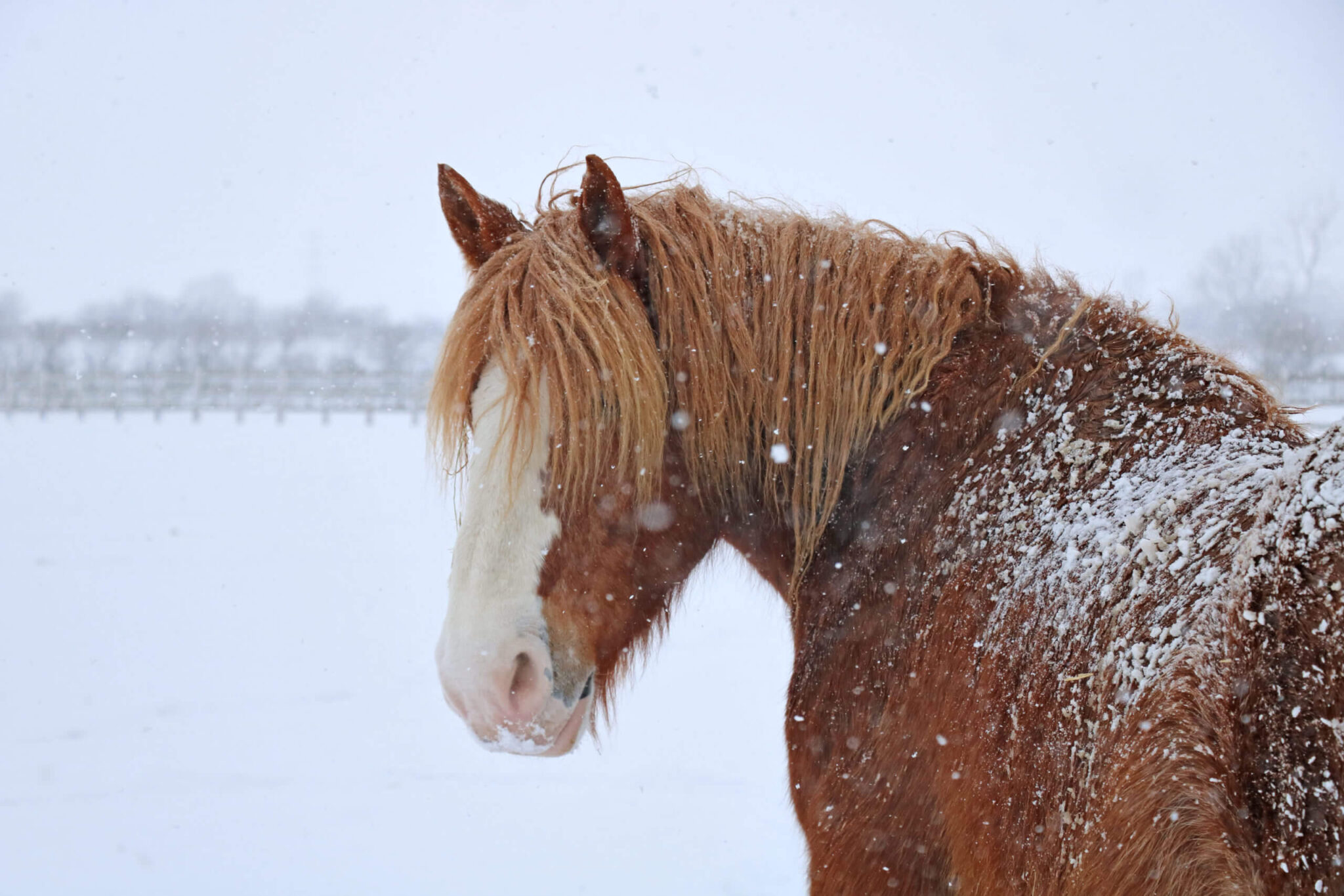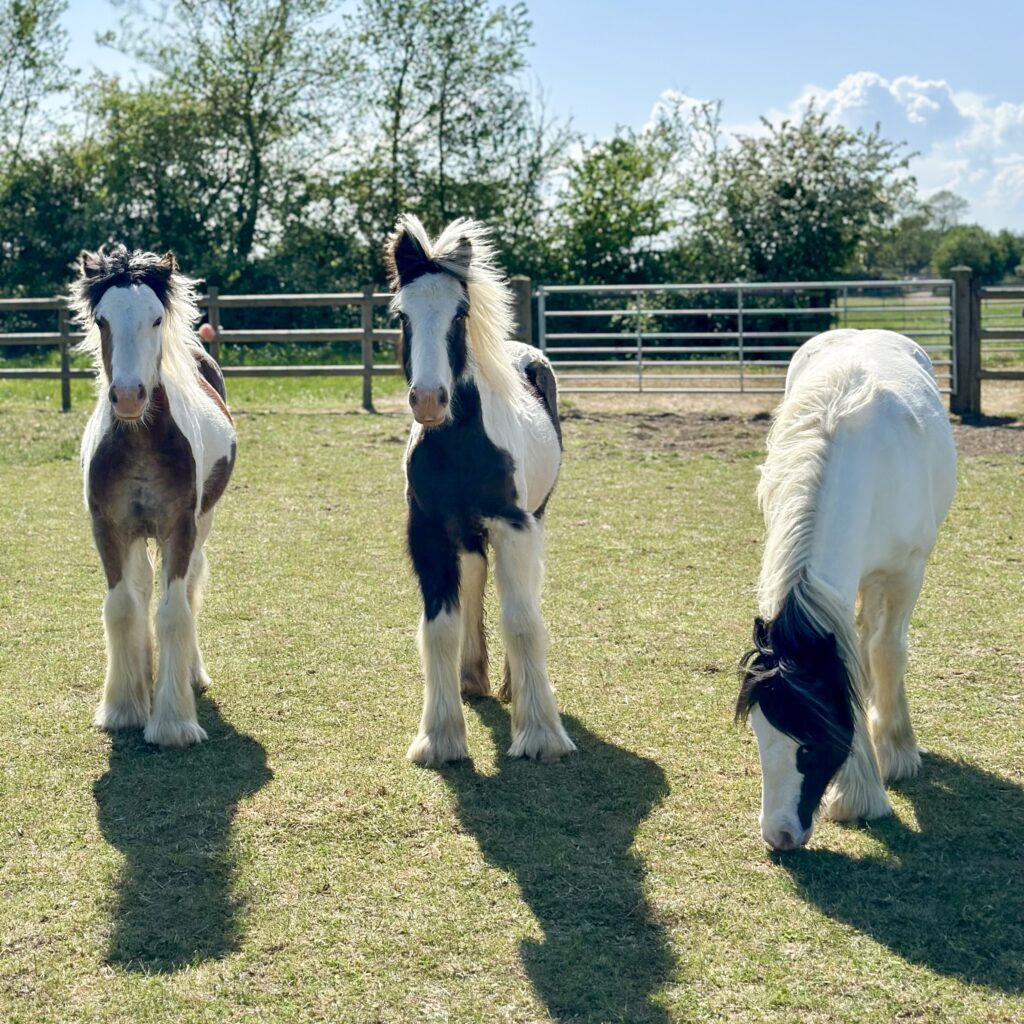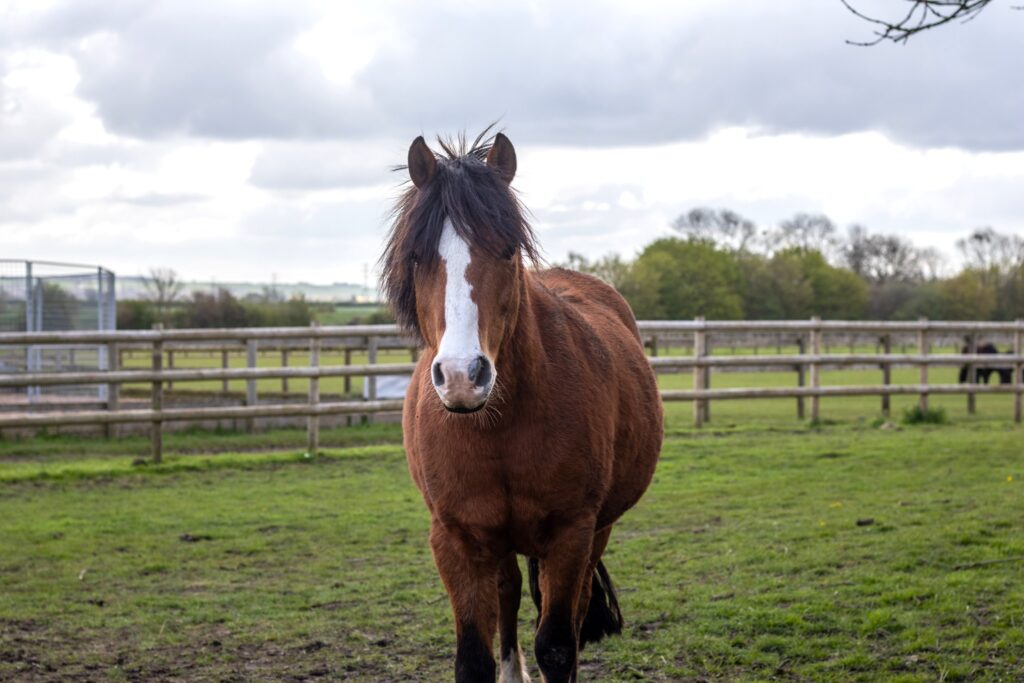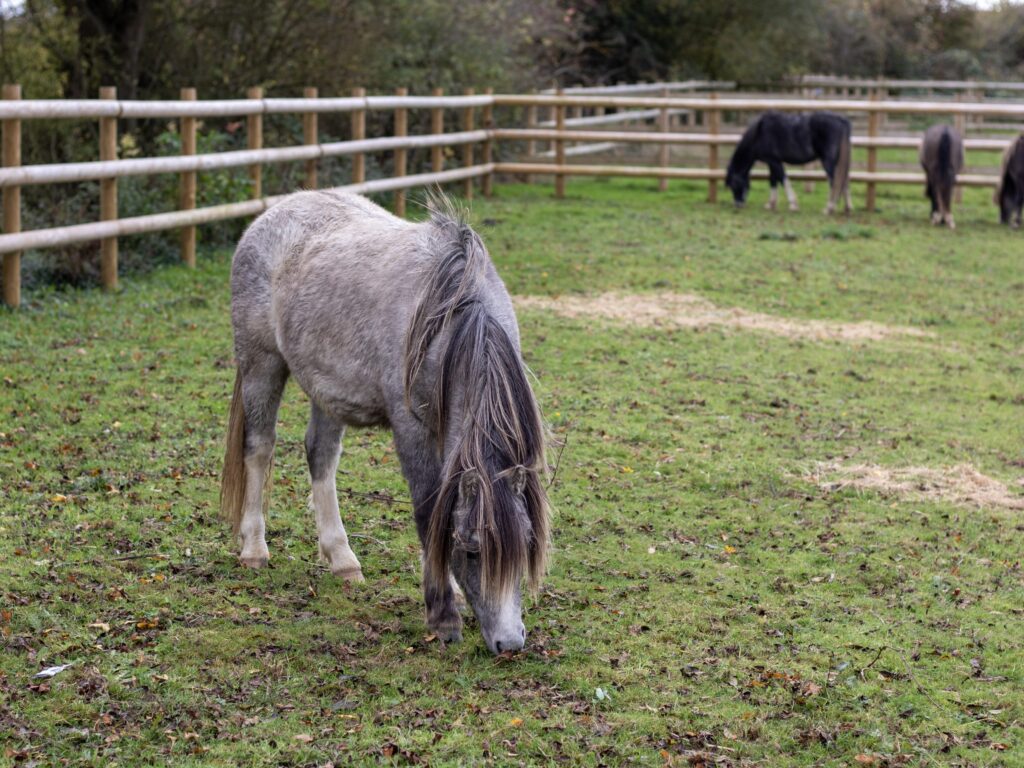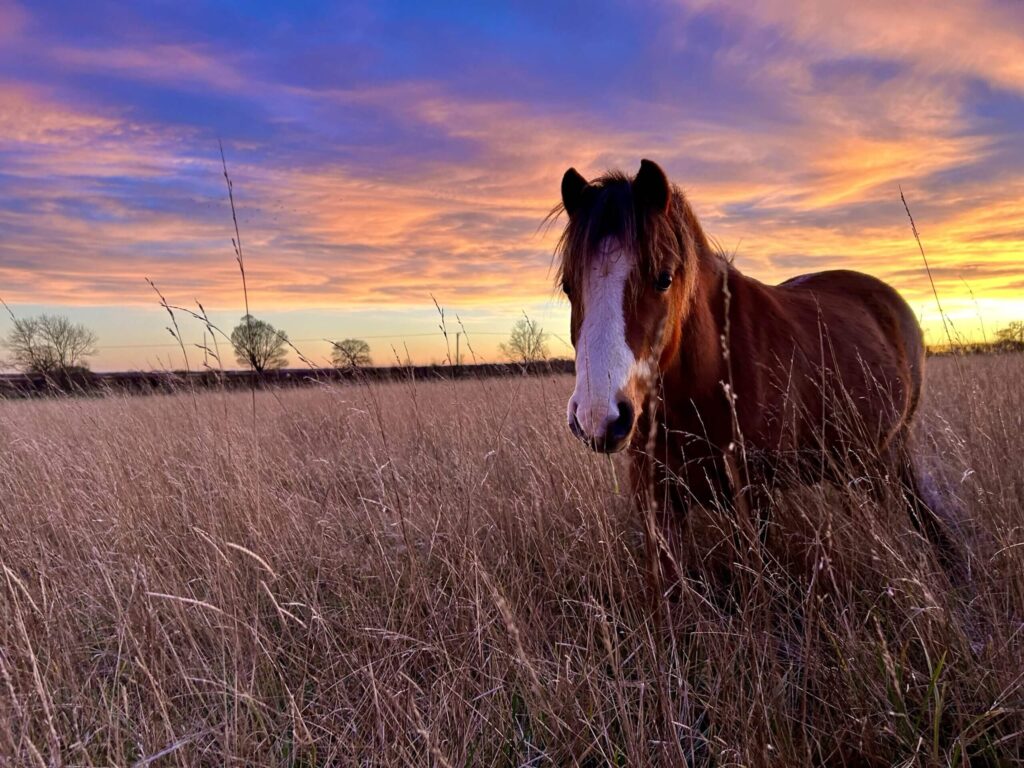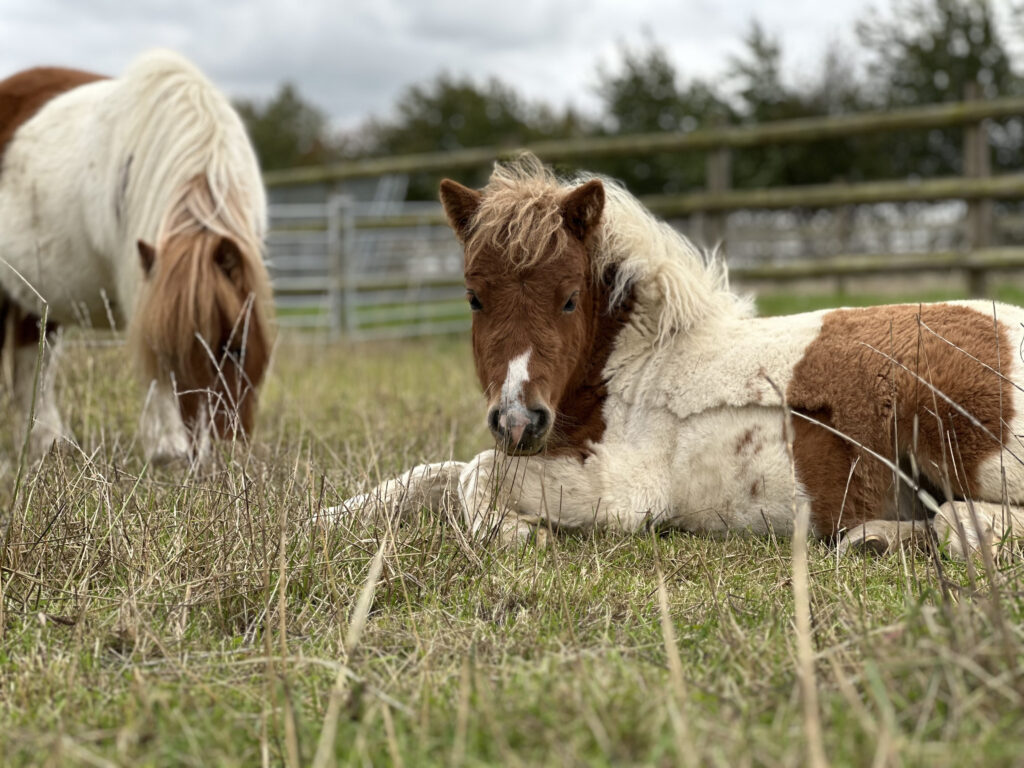As the nights draw in and the weather has taken a bitter turn this week, our thoughts turn towards adapting a little later than usual this year, and implementing those winter routines to ensure our equines stay happy and healthy. Below are our six top tips for owners caring for horses this winter.
1.Provide the Right Nutrition: Over centuries, horses have evolved to create an incredible digestion process which ferments their food and creates extra heat. Forage, such as hay produces more heat during the fermentation process than other food. As tempting as it might seem, it is not advisable to overload horses on hard/concentrate feed during winter if they are not working hard. Doing so can lead to health issues such as colic, being overweight and laminitis. Given this, it is vital animals have access to good amounts of forage in winter. Spreading the hay out across paddocks will reduce the risk of fighting and injury. It is recommended that older horses have a dental check to ensure they have a good grinding surface so they can cope with forage during winter. Due to the low nutritional content of grass in the winter, it is also widely recommended to give a vitamin and mineral supplement or a feed balancer.
2. Check Your Water Supply: Water is just as important in the cold as it is during the warmer months; horses can often drink more water in the winter when fed dried forages such as hay. Remember to check troughs each day to ensure they are clean and not frozen. A tennis ball or small football left to float in the water can help to stop water freezing when it’s really cold.
3. Choose the Right Rugs: Horses and ponies have cleverly evolved to fluctuate their weight during the year, enabling them to adapt to the various seasons. During the spring and summer months, many horses and ponies pile on a few extra pounds and store them as fat for the winter. Horses’ innate ability to fluctuate weight can be affected by unnecessary rug use, which can lead to long-term obesity and other health complications. This is why not all horses or ponies need rugs. Key factors such as the breed, age, living conditions, workload and health status should be considered.
Native types such as Shetland and Welsh ponies are adapted to living in colder conditions. They can grow thick winter coats, packed full of natural oils to protect from them from the elements. Excessive grooming can remove these oils, so be mindful not to over groom these breeds.
Warmbloods and Thoroughbreds, with finer coats, are more likely to struggle to keep warm and would benefit from a rug. Working horses which are clipped need to be rugged as will older, sick or injured. Remove rugs daily and check for signs of rubbing or skin irritation.
Pick the right weight rug for the weather conditions and the horse’s needs. , rugs that aren’t made from breathable materials can cause more problems than they solve. Choose your horse’s rug wisely and if in doubt, speak to the manufacturer. Having somewhere to dry your rugs when they get soaked in the rain and a spare to rotate during wetter days, is also a good idea.
4. Provide Shelter from the Elements: Stabled overnight or out all year round – each approach has its own merits.
Choosing to turn out all year is an option for your horse or pony, as long as suitable shelter and forage are available. Outdoor shelters don’t have to be manmade structures – a group of trees can provide adequate shelter, as can hedges. Just be sure the whole herd can comfortably seek shelter in the paddock.
If choosing to stable a horse, provide low dust or dust-free bedding that is deep enough for the horse to comfortably lie down on. Muck-out and air the stable daily to prevent a build-up of ammonia, which can cause respiratory problems.
Stabled horses should be turned out daily to exercise and exert their natural behaviours. Horses who are confined to a stable, without regular turning out can suffer physical and mental stress.
Unforeseen circumstances, such as severe weather, could mean you are unable to reach your horse or the yard. Consider who could take care of your horse should this happen and how this situation could be managed.
5. Paddock and Mud Maintenance: Mud and winter go hand in hand; most horse owners will be well versed in trudging up and down water-logged fields on dark cold nights or mornings. Gateways, water troughs and hay feeds inevitably become challenging and require careful navigation for both horses and humans. For horses, these wet and muddy conditions can lead to skin irritation and fungal infections such as mud fever. Brush and check legs regularly for sores and always seek veterinary advice if concerned. Putting down hard-core or specialist paddock mats around high traffic areas can help. If there is enough land, rotational grazing methods can also be used. Check all fencing around the paddock daily. Even a small hole in a fence could cause serious damage or become an escape route.
6. Exercise According to the Weather: Ice and frost can be a real challenge, especially in the dark winter nights or early mornings. Purchase a good supply of grit and salt; when it gets icy, sprinkle it on yards and walkways – this will make it easier for horse and owner to walk without slipping and causing injury. Equally don’t ride on slippery surfaces or if visibility is poor. It is important your horse or pony is able to get out daily, either under saddle, in-hand in a turn-out area. Movement and grass help to increase gut mobility and reduces the risk of colic. Exercise according to the weather and your horse’s temperament.
Summary
Owners should continuously monitor their horse’s health throughout the year and ensure all veterinary, dental and farriery is kept up-to-date. Likewise, every horse or pony has individual needs which should be taken into account when considering what feed, rugs, shelter and exercise are required.
Although the weather can be unpredictable, it doesn’t have to be stressful. Planning winter management prior to colder months will really help owners feel confident and organised. Each horse is different and its ability to cope in the colder months will vary depending on any number of factors discussed above, which will impact their management. Just remember planning is key.
For free, non-judgemental advice and guidance on winter management or equine welfare, contact us on 01427 788 464.

